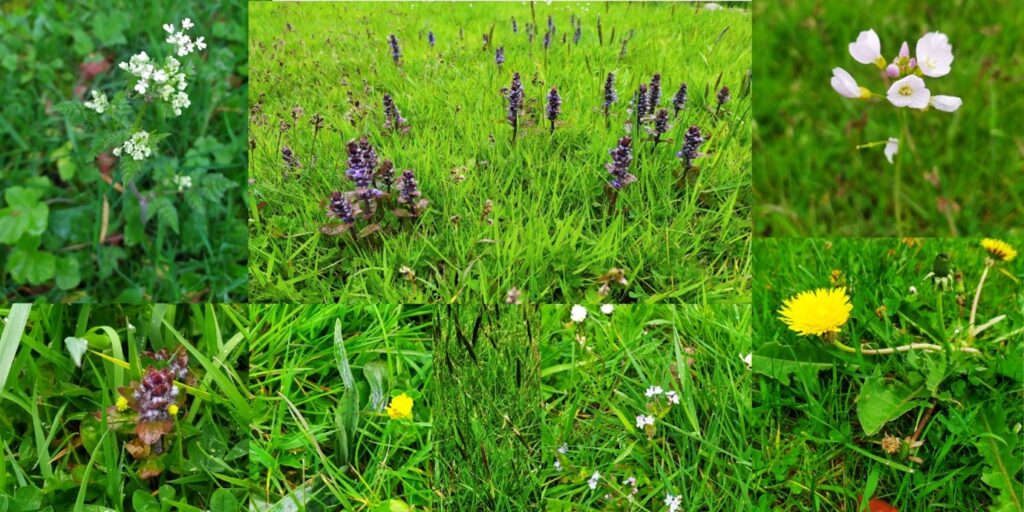No Mow May asks all garden owners and green space managers to liberate their lawns to provide space for nature, just by sitting back and watching the flowers grow.
At ACD we are excited to support the essential shift in attitudes toward lawn management which benefits plants, pollinators, people, and the planet.
Keeping the mower out of the way for a month can allow spring flowers a chance to set seed before the first cutting which encourages a healthier and more diverse lawn. For most of us, that means holding back on just two lawn cuts.
Lawns with areas of long grass and wildflowers through less frequent mowing can provide 10 times more nectar to bees, butterflies, moths, beetles, and other pollinators. Imagine the gain for nature if 23 million gardens were mown less! We shouldn’t fear ‘weeds’ on our lawns, dandelions, especially, are a superfood for insect life and despite their fewer numbers they provide 37% of the nectar sugar on a typical lawn.
In the UK we have lost 97% of our wildflower meadows in the past 70 years in the UK and we have lost half our butterflies since 1976. Providing food for pollinators is critical to their survival. Mowing every 4-6 weeks and removing the cuttings will create a shorter reflowering lawn with flowers such as Bugle, Self-heal, Red Clover, and Lady’s Bedstraw. Birds will also benefit by foraging in longer grass.
At ACD we design lawn areas with a mix of slow-growing grass species and wildflowers which can be mown less and further support wildflower meadow areas to increase diversity across a site.
Last year the 10 most common plants seen during the month of May were daisies, creeping buttercup, yellow rattle, common bird’s-foot trefoil, field forget-me-not, meadow buttercup, white clover, common mouse-ear, oxeye daisy, dandelion. Yellow rattle is often synonymous with meadows, acting as ‘nature’s lawnmower’ with the ability to reduce coarser grasses and allow room for wildflowers.
With some time gained and less energy spent on mowing, let’s all learn from our lawns’ this spring!
(Can you spot the orchid yet to flower?)

